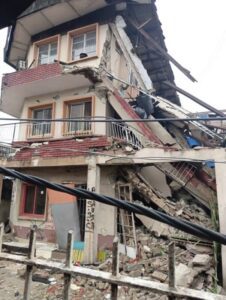
The persistent challenges in Nigeria’s electricity sector
The Nigerian electricity sector continues to struggle with systemic issues that adversely affect consumers, and the latest report from the Nigerian Electricity Regulatory Commission (NERC) offers a stark reminder of these persistent challenges. In the third quarter (Q3) of 2024, a staggering 70.28 percent of customer complaints were related to metering, billing, and service interruptions, the three most common issues plaguing electricity consumers across Nigeria. Despite efforts by both the government and power distribution companies (DisCos) to improve service delivery, these issues have not been sufficiently addressed, resulting in a continued cycle of frustration for millions of Nigerians.
The NERC report revealed that a total of 328,696 complaints were filed across all DisCos in Q3 2024, representing a significant 14.35 percent increase compared to the previous quarter. This rise in complaints highlights a growing discontent with the quality of electricity supply, particularly when it comes to metering and billing. The fact that more than 41 percent of complaints were related to metering issues alone underscores a failure in delivering accurate and reliable metering systems. Meanwhile, billing issues, often tied to overcharging and incorrect readings, made up a further 21.28 percent of the complaints. The combination of these billing and metering challenges is leaving many customers either overburdened with excessive charges or unable to gauge their actual energy consumption, deepening mistrust in the sector.
Moreover, service interruptions, which account for 7.05 percent of complaints, further exacerbate the plight of consumers. These interruptions, often unpredictable and prolonged, are a daily nuisance for Nigerians who are already grappling with the economic challenges of high living costs. The frequent and inconsistent power supply is not only an inconvenience but also a serious hindrance to the productivity of businesses, especially small and medium-sized enterprises (SMEs) that rely heavily on a stable power supply to operate efficiently.
A closer look at the regional breakdown of complaints reveals stark disparities in the quality of service across the country. Eko DisCo, for instance, received the highest number of complaints, accounting for nearly 20 percent of the total complaints in the quarter, while Yola DisCo recorded the fewest complaints. This variation highlights the uneven service delivery across different DisCos, which continue to operate under vastly different circumstances, often with limited accountability. It also raises questions about the regulatory oversight that is supposed to ensure consistent standards across the sector.
While NERC’s efforts to address these concerns are commendable, particularly the improvement in the complaint resolution rate from 22.38 percent in Q2 2024 to 31.15 percent in Q3 2024, much more needs to be done. The low resolution rate suggests that many complaints remain unresolved, with customers still bearing the brunt of an inefficient and unreliable system. Furthermore, although NERC facilitated credit adjustments amounting to N207.4 million to customers for over-billing, this reactive approach to addressing billing issues is merely a band-aid solution to a much larger and more systemic problem.
One of the most troubling aspects of the current situation is the rising number of appeals at NERC’s forum offices, with 3,202 active cases recorded in Q3 2024. These cases, many of which are unresolved, reflect the deep-seated frustrations of Nigerian consumers who feel that their grievances are not being adequately addressed by the DisCos. NERC’s assertion that it is working on improving the customer complaint resolution process is a step in the right direction, but the commission must do more to ensure that DisCos are held accountable and that their complaints are resolved quickly and fairly.
The ongoing challenges in Nigeria’s electricity sector are not just about poor service delivery; they are a reflection of the wider problems facing the country’s infrastructure and regulatory frameworks. As power cuts continue to disrupt lives and businesses, Nigerians are left questioning the government’s commitment to providing a sustainable and reliable power supply. It is clear that the sector needs significant reform, greater transparency, and improved regulatory oversight if it is to serve the needs of the people and contribute to the country’s economic development.
The latest NERC report paints a sobering picture of Nigeria’s electricity sector in Q3 2024. While some progress has been made in addressing customer complaints, the sector is still far from meeting the expectations of Nigerians. For real change to occur, there must be a concerted effort from all stakeholders—NERC, DisCos, the federal government, and consumers themselves—to ensure that the delivery of electricity services is not only efficient and reliable but also fair and equitable. Until these issues are addressed, the frustration of electricity consumers will continue to grow, undermining the sector’s potential to drive economic growth and improve the quality of life for Nigerians.




